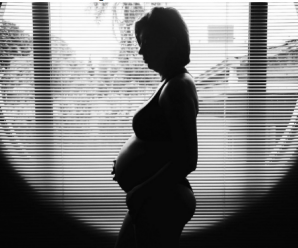The Risk of Pregnant Women with a Weak Heart

Many women with existing heart conditions may have already struggled with a particular dilemma for once in their life—that they should never get pregnant. However, this is actually just a terrible misconception. The truth of the matter is that it is possible for women with heart disease to successfully bear and deliver a child, especially if their condition is safely managed. Although certain evaluation is necessary to determine whether pregnancy is safe for people with heart diseases, it is truly rare that these individuals are put at too much risk during pregnancy.
While pregnancy in the presence of a heart condition is possible, the risks involved may still depend on the nature and severity of the particular heart disease. First, it is important to know how the heart actually works during pregnancy.
How Pregnancy Affects the Heart
Pregnancy can have significant effects on the heart and one’s entire circulatory system. Specifically, being pregnant increases a woman’s blood volume by 30 to 50 percent to compensate for the needs of the growing fetus. Simply put, the heart keeps up by pumping more blood every minute, increasing the heart rate in the process.
The heart’s workload increases significantly during labor and delivery too. Particularly, when you push during delivery, blood flow and pressure abruptly change, and it may take several weeks after delivery for the heart to return to its normal levels before pregnancy. To put it simply, pregnancy requires the heart to work extra hard, which may cause trouble to individuals with certain types of heart disease.
What Shouldn’t Stop You from Getting Pregnant
Some heart conditions may not get in the way of a healthy pregnancy, such as heart murmurs and arrhythmias. Heart murmur, which is the extra sound you hear during a heartbeat, is in fact very common in pregnant women because of the increase in blood volume. On the other hand, arrhythmia or irregular heart rate, which may develop or worsen during pregnancy, may not require any treatment.
Another common condition that urges more and more women to delay pregnancy is having high blood pressure. However, it is actually the most commonly managed medical condition during pregnancy. The greatest risk pregnant women with high blood pressure may face is developing preeclampsia, which is often safely managed until the baby is safe to be delivered.
When Pregnancy Requires Careful Consultation
Having heart valve issues, such as having an artificial heart valve or a malformation or scarring in the heart or its valves, may put pregnant women at an increased risk of getting complications. Having valves that do not work properly may mean trouble for the heart especially with the increased blood flow that comes with pregnancy. Cardiomyopathy is another condition that may increase one’s risk of complications during pregnancy. This condition develops when the cardiac muscle weakens because of a variety of reasons.
Conditions When Pregnancy May Be Inadvisable
Unfortunately, there may be a few rare heart conditions that likely mean a woman should not get pregnant at all, as it may greatly increase the risk of death in the pregnancy. One of these conditions, Marfan syndrome, may bring fatal results as patients with this condition often have a weak aorta, which can possibly rupture during pregnancy.
Pulmonary hypertension caused by a disease called Elsenmenger syndrome is another condition that often brings danger to pregnant women. Since this condition involves being born with a hole in the heart, which allows blood to backflow into the lungs, which eventually leads to high blood pressure in the lungs, the person may not be able to receive adequate oxygen, increasing his or her risk of death.
Getting Pregnant with a Heart Disorder
Unless otherwise advised, women with a heart disease may get pregnant, given professional guidance and proper management. If you are one of these women, make sure to frequently visit your doctor to have your condition assessed and your vitals checked with the use of proper medical equipment such as a Datex Ohmeda pulse oximetry sensor.
Also, try to avoid gaining extra weight and being under stress as much as possible. Pregnant women need to get enough rest, especially when they have an underlying heart condition to manage.






